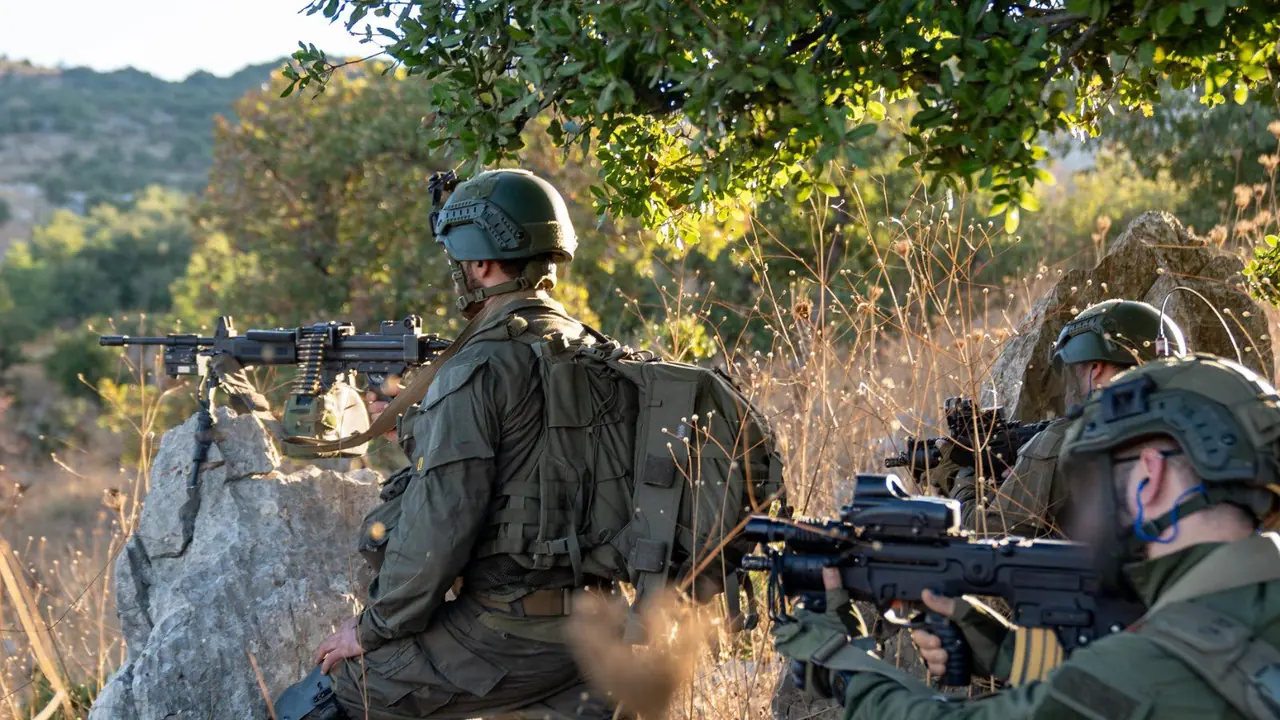The IDF on Monday announced the elimination of seven brigade commanders, 21 battalion commanders, and 24 company commanders of Hezbollah.
In its ongoing military campaign against Hezbollah, the Israel Defense Forces (IDF) have dealt a significant blow to the terrorist organization’s leadership in southern Lebanon. The IDF on Monday announced the elimination of seven brigade commanders, 21 battalion commanders, and 24 company commanders of Hezbollah. This marks a critical development in the military's efforts to dismantle Hezbollah’s chain of command and operational capabilities.

"IDF forces continue targeted operations in the Lebanese sector, and in close cooperation between the Modi'in and Ash Air Forces, so far 7 brigade commanders, 21 battalion commanders and 24 company commanders in the terrorist organization Hezbollah have been eliminated," wrote IDF in a post on X.
It further added, "In addition, the IDF attacked over 3,200 terrorist targets, of which hundreds of ammunition depots, hundreds of launchers, anti-tank posts, terrorist infrastructures and headquarters, of which about 300 terrorist targets were attacked in the last day alone."
According to the IDF’s latest estimates, over 1,200 Hezbollah fighters have been killed in southern Lebanon since the ground offensive began, with more than 2,000 Hezbollah members killed overall since hostilities escalated in October 2023. The ground offensive, which involves five Israeli military divisions, has seen significant success, with Hezbollah’s forces reportedly unable to mount an effective counterattack or bring in reinforcements due to heavy IDF strikes and ongoing pressure.
The offensive has primarily focused on neutralizing Hezbollah’s military infrastructure in the region. The IDF claims that its operations have degraded the terrorist organization’s ability to launch large-scale attacks and have significantly limited its capacity for rocket strikes. It is estimated that Hezbollah now retains only 30% of its pre-war rocket capabilities, though this still includes thousands of rockets. The reduction in rocket capabilities, combined with the elimination of field commanders, has disrupted Hezbollah’s ability to organize and execute the massive rocket barrages it had initially planned.
The IDF views these developments as a strategic victory in its broader campaign to neutralize Hezbollah’s presence in southern Lebanon. The military believes that Hezbollah’s command structure has been severely weakened, with the deaths of top-level commanders leaving the group struggling to coordinate its forces effectively.
Beyond the leadership losses, the IDF has also seized significant quantities of weapons and ammunition, further limiting Hezbollah’s capacity to carry out attacks. With Hezbollah struggling to resupply and reinforce its positions, Israeli forces have gained a tactical advantage across the areas in which they are currently operating.
Despite these successes, the IDF is continuing its operations in southern Lebanon. The military’s objective is to completely remove the Hezbollah threat from the border region, allowing residents of northern Israel, who have faced frequent cross-border attacks, to return to their homes.
In light of the current progress, the IDF aims to conclude its military campaign in the region within the coming weeks. As the ground offensive moves forward, Israel remains focused on ensuring the long-term security of its northern border and eliminating any remaining pockets of Hezbollah resistance.
The IDF believes that the cumulative losses of both personnel and equipment have forced Hezbollah into a defensive posture. The organization, which once posed a major threat to Israeli territory through its vast rocket arsenal and well-trained fighters, is now struggling to maintain operational momentum.
While Hezbollah still retains thousands of rockets, the degradation of its command and control systems has limited its ability to launch sustained or coordinated strikes against Israel. The IDF's strategy of targeting Hezbollah’s leadership appears to be paying off, with the terrorist group’s ability to wage war significantly curtailed.
